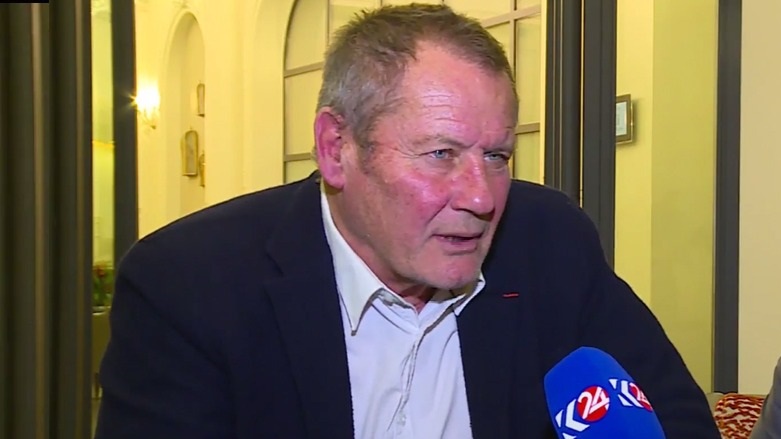Kurds need to work together on a new independence strategy, former French consul says

ERBIL (Kurdistan 24) – The Kurdish people need to take further steps and embrace a new strategy towards independence, the former French Consul General in Erbil, Frederic Tissot said in an interview with Kurdistan 24.
On the 30th anniversary of the adoption of UN Security Council resolution 688, which led to American, British, and French forces establishing no-fly zones to protect Kurds in the north and largely-Shia populations in the south of Iraq, Tissot described the situation in 1991 as a very tough and sad time.
“We have seen a lot of pain as millions of people were in the mountains, with women, children, and elderly on the road, without a place to go. I saw this scenery along with Bernard Kouchner,” Tissot said, referring to the French founder of the charity Medecins Sans Frontieres, or Doctors Without Borders.
Tissot explained that after seeing the Kurdish suffering, “we spoke with Danielle Mitterrand, and then to president Mitterrand, as we believed that through airplanes, we will be able to send [civilians] aid.
"After that resolution 688 was issued, which prevented the killings by Saddam, and it was a great victory for France, and I was proud the French leader had a role in the issuance of the resolution,” he said.
Tissot also pointed out the importance of the resolution as it introduced the Kurdish issue to the world, and exposed Saddam Hussein as a threat to human rights.
The no-fly zone was proclaimed by the US, UK, and France during the Gulf War to protect the people of the Kurdistan Region. Iraqi aircraft were forbidden from flying within the area, effectively protecting Kurds from the regime in Baghdad.
The Kurdish people returned from the mountains and camps to towns and cities to begin setting up Kurdistan’s Autonomous Region. They voted for a new parliament in May 1992, which was evenly divided between two major parties that formed a coalition government on July 4.
Tissot stressed that the Kurdistan Region has its parliament and government and the parties need to work together.
“The situation is changed now, as the Kurds have a young prime minister and a young president with a lot of youth power, and they will be able to provide a bright future for Kurdistan, and to remember your past,” he said.
Editing by Joanne Stocker-Kelly
